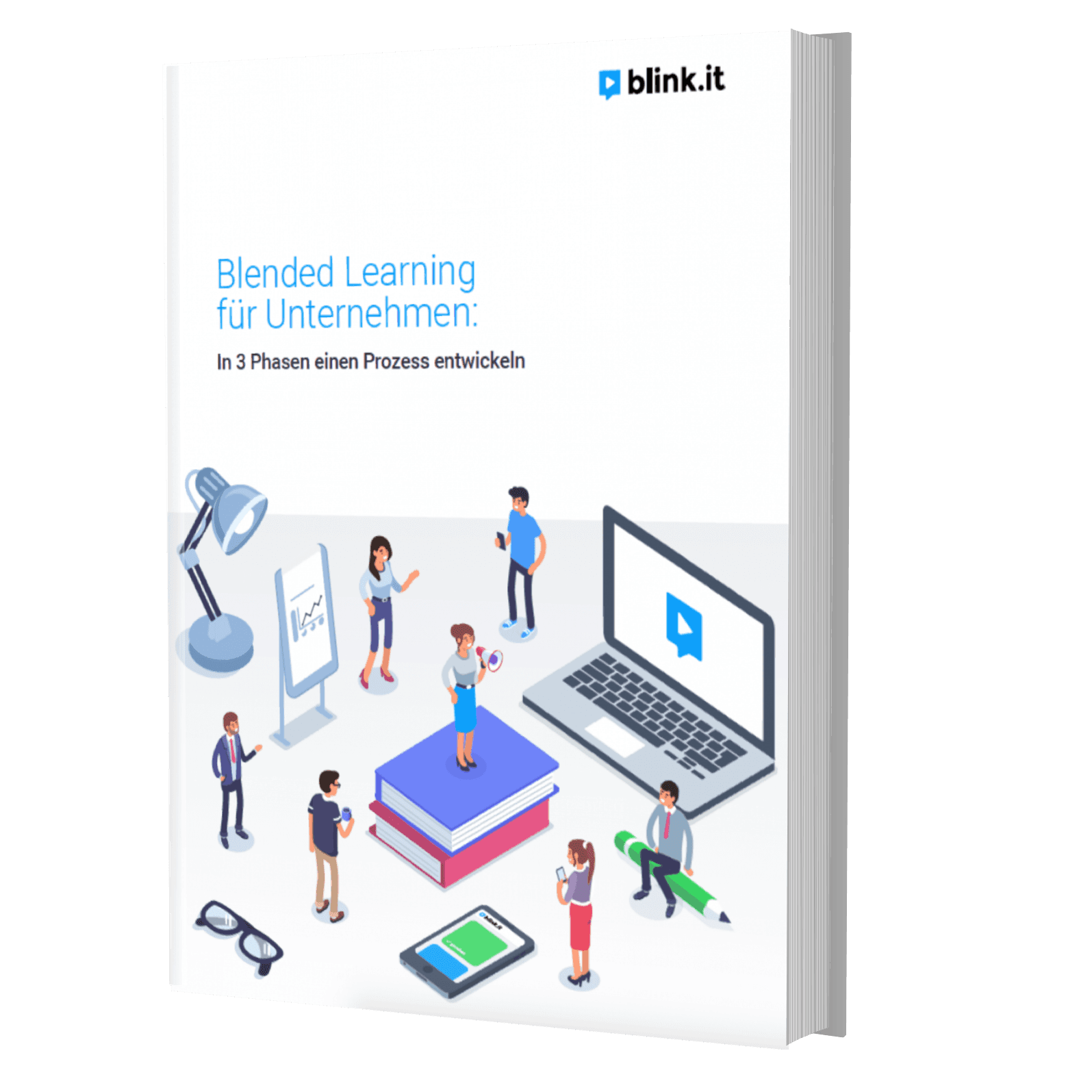Because information from all possible sources bombards us around the clock, critical thinking is more important than ever. In this article, you will learn how to encourage your learners in online courses to think critically and develop their own solutions using the learning methodology of Socratic Questioning.
“I know that I know nothing.”
There is much to discuss about what exactly the Greek philosopher Socrates meant by this thought. However, it is well known and undisputed that he engaged extensively in the development of his students. He helped them, among other things, gain new insights by prompting them with appropriate questions to discover the solution to a matter for themselves.
The principle of Socratic Questioning as a didactic method directs the learning process through structured questions. Instead of imparting knowledge in a lecture format, this technique encourages learners to develop their own answers, question assumptions, and consider different perspectives. This learning methodology differs from simply asking questions in that it systematically stimulates reflection and encourages learners to think more deeply about a topic.
The 6 Types of Socratic Questioning
In Socratic Questioning, there are 6 central questioning techniques that you can strategically use to promote your course participants’ critical thinking:
1. Clarification Questions
These questions help clarify terms, concepts, or arguments. They force your learners to articulate their statements more precisely and specify vague terms.
Example: “Can you explain that in more detail?”
Application in E-Learning: Include a question in your quiz that prompts participants to clarify a vague definition in their own words.
2. Questioning Background Assumptions
These questions uncover hidden assumptions and biases that influence the thought process.
Example: “What assumptions underlie this statement?”
Application in E-Learning: For example, in an ethics course, initiate a discussion in which learners reflect on the assumptions behind certain moral judgments.
3. Examining Evidence and Arguments
These questions help critically evaluate and validate arguments.
Example: “What evidence supports your opinion?” or “Is there any evidence that contradicts this thesis?”
Application in E-Learning: For instance, integrate a learning module into an online course on academic work where your course participants must evaluate various sources.
4. Exploring Alternatives and Perspectives
These questions encourage thinking about alternative viewpoints.
Example: “Is there another way to solve the problem?” or “How would someone with an opposing viewpoint argue?”
Application in E-Learning: Challenge your participants in a case study-based training to analyze a problem from various perspectives.

5. Investigating Consequences and Implications
These questions help reflect on the long-term consequences of a statement or decision.
Example: “What would be the long-term impact of this decision?”
Application in E-Learning: For example, have your learners consider what ecological or social consequences a particular business strategy could have in a course on sustainable business management.
6. Questions about Fundamental Assumptions and Concepts
These questions get to the root of a topic and promote deeper reflection.
Example: “Why is this concept relevant at all?” or “Could the opposite also be true?”
Application in E-Learning: For example, encourage your course participants in a philosophy course to question fundamental concepts like truth or justice.
Benefits of Socratic Questioning in E-Learning
Socratic Questioning offers numerous advantages for both learners and the leaders or creators of online courses:
Benefits for Your Course Participants
Promotes Critical Thinking: Instead of simply accepting information, your participants learn to question content, analyze arguments, and draw informed conclusions.
Increases Independence: Your learners develop the ability to discover knowledge for themselves instead of passively waiting for answers.
Strengthens Problem-Solving Skills: Through targeted questions, your participants are encouraged to develop their own solution strategies.
Encourages Deeper Engagement with the Topic: By questioning their own assumptions, your learners engage more intensely with the material and retain their knowledge long term.
Increases Motivation: Because this method is interactive and allows for personal reflection, your learners feel more actively involved in the learning process.
Benefits for Instructors and Content Creators
Enables More Targeted Knowledge Transfer: Instead of simply presenting facts, you can strategically guide the learning process with thoughtful questions.
Enhances Course Interactivity: Learners are encouraged to actively engage in the course, which increases attention and involvement.
Promotes Reflection and Discussion: Instead of providing simple answers, you can stimulate discussions and introduce various perspectives.
Facilitates the Recognition of Knowledge Gaps: Through your learners' responses, you can quickly identify areas where there are still uncertainties and address them specifically.
Supports Adaptive Didactics: The method allows you to flexibly respond to the needs of your learners and adjust content dynamically and individually.
Application of Socratic Questioning in E-Learning
1. Discussion Forums and Group Work
In online courses as part of blended learning, you can use Socratic Questioning to lead discussions. Additionally, you can use structured debates or peer reviews in which participants ask each other critical questions. Here are two concrete examples:
In a discussion on the ethical implications of a new technology, you prompt your learners to question the assumptions behind the arguments of other participants.
In a debate about environmental protection, you specifically ask learners about the long-term impacts of certain political decisions and alternative perspectives.
2. Interactive Quiz Questions with Reflection
Instead of asking simple multiple-choice questions, you incorporate open-ended questions into your online course that require justification. Provide hints or counter-questions to stimulate further thinking. For example:
In a quiz on a mathematical concept, you ask not only for the correct answer but also why that solution was chosen.
In a history quiz, you can ask which historical events have alternative interpretations and why those interpretations are important.

3. Case Studies and Scenario-Based Learning
Your course participants can be encouraged to view problems from different perspectives through Socratic Questioning. Another option is to present different approaches to solutions and encourage learners to critically compare them. Here are two examples:
In a business course, you ask your learners to analyze various business decisions and consider the assumptions behind each decision.
In a medical course, various diagnoses might be presented, and learners must critically evaluate the effectiveness of the proposed treatments and discuss alternatives.
4. Learning Journals and Reflection Tasks
Your learners can answer regular reflection questions to question their own thinking. So, integrate targeted feedback loops into your courses to provide additional prompts and spark discussions. Here are three practical examples:
Ask your learners how they would apply a learned concept in their daily lives and what assumptions play a role in that.
Encourage your course participants, for example, in a management course, to reflect on the impact of their own decision in a hypothetical leadership situation and critically question that decision.
Conclusion
Socratic Questioning is a powerful method to make online courses - whether stand-alone or as part of blended learning - more interactive and engaging. Through targeted questions, you encourage your learners to think independently, question assumptions, and thereby build sustainable knowledge. When you integrate this learning methodology into your content as a course developer, you create an environment where genuine, critical thinking is fostered, which is more important than ever in an information-saturated world full of fake news and AI-generated content.
We hope that this article provides you with some useful ideas and wish you much success with the Socratic Questioning learning methodology!







